The Reformed Church in Hungary is always intentional where the maintenance of international ecumenical relationships is concern. It is a tradition for us to ensure that our officially recognised partners are invited to send representatives to our Synod Meetings. In the same way the Reformed Church in Hungary receives invites to from all corners of the world, from America to Europe and from South Africa to South Korea.
In 2011, under the recommendation of the Foreign Affairs and Ecumenical Committee, the RCH Synod decided that “as a statement of community with partner churches, empower the Presidency of the Synod to invite representatives of partner churches to attend Synod Meetings of the Reformed Church in Hungary.” According to the justification of the recommendation, participating at partner Synod Meetings, “give a chance to get an insight into the current questions regarding church and society issues of these churches and made the enriching application of its opinions and views of faith possible.”
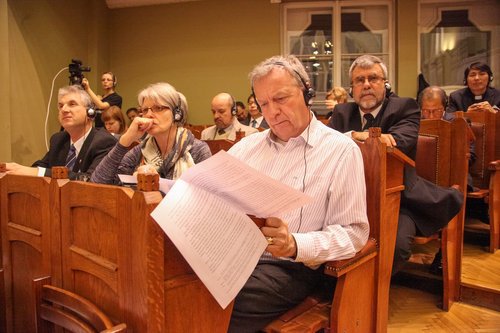
It is in November of 2012 that a number of partner churches sent representatives to the Synod Meeting, of which the main theme was “Church Revision”, and thus the church Revision Committee was commissioned. The guests, got some insight into the Reformed Church in Hungary revision process, and they were also given a chance to share their opinions on this.
In 2014, international delegates were again invited to Closing Synod of RCH’s 13th Cycle. As part of their visit was a partners meeting which was about Peace and Reconciliation in the light of Communist Past, that took place on 11th November, a day before the Synod Meeting.
This partners meeting was hosted by Balázs Ódor, head of Ecumenical Office of the Reformed Church in Hungary. The meeting consisted of partners from Scotland, Ireland, Austria, South Korea, Czech Republic, South Africa, Italy, Taiwan, Germany and Switzerland.
Bishop Bölcskei gave the opening prayer and remarks sharing the words of II Corinthains 5:16-21 that reminds us of our call to the world as ambassadors of Christ. The Bishop mentioned how important it is to work outside our boarders, in societal mission, and in social responsibility levels as well.
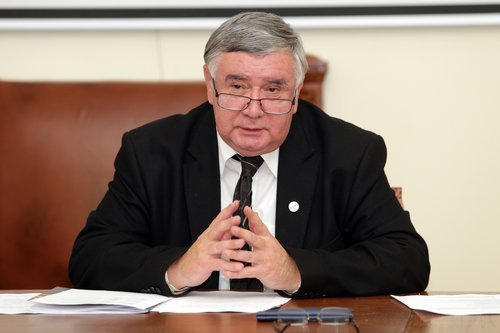
Bishop of the Dunabian Church District István Szabó reflecting on the last twenty years of freedom form dictatorial leadership said that despite the freedom, there are things inherited from the communist past that are a result of unanswered questions. Bishop Szabó mentioned that opening up of the past causes a kind of ambivalence and can sometimes be used as a political tool. He also highlighted that the Reformed Church in Hungary needs to take certain steps towards church and societal Peace and Reconciliation. The Fact Finding Committee has announced Peace and Reconciliation in a 7 year Cycle. “This is just the first two steps of the process.” – said Bishop Szabó, quoting 2010 Synodal 10 point Decision on the process of the Peace and Reconciliation.
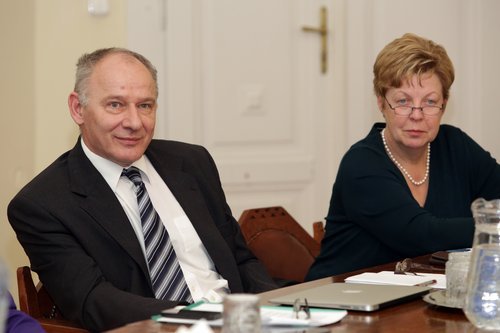
The Fact Finding Committee member Dr. Erzsébet Horváth, who is also the Synod Achieve Director, in her statement mentioned that the Synod entrusted capable professionals, to gather information on Reformed Church in Hungary and the National Church Relation Office in connection with the national security reports and with this enable understanding of the dictatorial monitoring as well as well as church that was collaborating with the state. The accessible files are gathered and are being processed into a study.
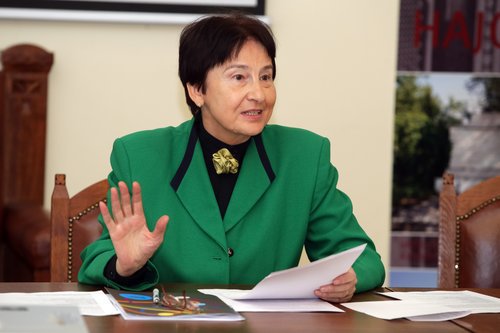
Dr, Sándor Fazakas, former Rector of the Reformed Theological University in Debrecen, was not able to attend, but his speech was read out, in which he emphasised the need to consider two factors: remembrance as well the attitude towards the past and how the church can shape the relations with the past. Dr. Fazakas highlighted the need for searching for a solution towards reconciliation, by first, defining sin (in terms of committed sin, as well as those who were wronged and have wronged). Second, is to implement ethnical, dimensions of remembrance, as well as exploration of the past as a moral obligation. Third, it is important to take human feelings and emotions seriously. Fourth, is to ensuring that there are not constraints towards the reconciliation. He concluded that we must realise that reconciliation is a process that needs time, patience, empathy, professional competences and revelation of the truth.
Rev. Nelus Niemandt Moderator of the Dutch Reformed Church of South Africa in his contributions towards the discussion of Peace and Reconciliation mentioned the importance of the role of the Church in this process. Especially due to the fact that in South African context the church, (as both leaders and congregants) supported the racial divide, and for most part really fought against the abolition of apartheid. Rev. Niemandt also mentioned that sometimes the church not speaking about the issue at hand, in a way is supporting the regime or injustices or conflicts that are happening in society. Saying this however, he acknowledged the churches efforts towards peace and reconciliation through dialogues towards it.
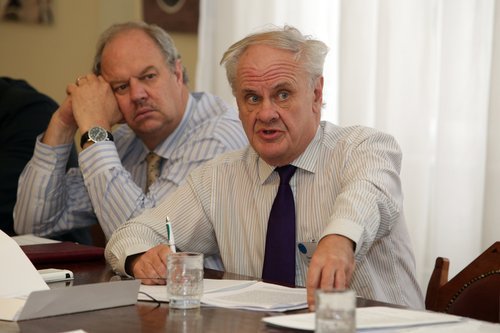
The Rev. Ching An Yeh Programme Secretary of the Ecumenical Relations Committee of the Presbyterian Church of Taiwan gave a brief history of the conflict in Taiwan and how the “228 Committee” has worked with the church to not only have conversations toward Peace and Reconciliation, but to also ensured a Memorial was erected to remember 28th February 1947. On this Memorial we find the words of Matthew 5:9 “Blessed are the peacemakers” and Micah 4:3-4 “turning swords into ploughshares” engraved on it.
The Rev. Joel Ruml, Moderator of the Evangelical Church of the Czech Brethren mentioned how through so many years of conflicts, German’s influence and contribution to the Nazi and later communist regime, to Roman Catholic and Protestant conflicts as well as relationships in the Communist regime the church still has a lot to do in this regards. Rev. Ruml sees the need for the church to take initiative in peace and reconciliation on both a church and social level as well.
The Very. Rev. Norman Hamilton, convener of the Church and Society Committee of the Presbyterian Church of Ireland narrated that even after the 1998 split of Northern Ireland joining United Kingdom to end the 30 years of Civil war, and hopes to find some peace. Now 25 years later Ireland still faces some ethnical divide, stating the church should take a stance in: cooperating with the government(not partnering, keep an eye on the ball (in terms as the goals to be achieved) and ensure good communication with those on the ground. Very Rev. Hamilton said that the gap between the Church and Civic leaders ensure that pastoral care is available for all including civil leaders so as to provide a biblical worldview on leadership.
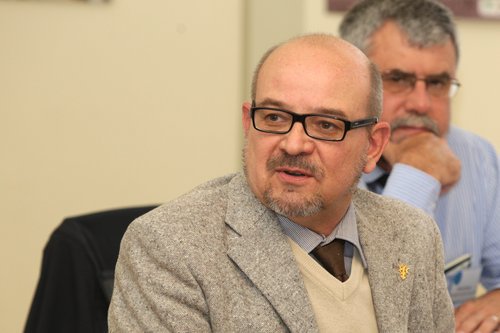
During discussion and recommendations, the partners mentioned the need to of awareness of the secularization of the secular world and the influence it has on the church in regards to the work of peace-keeping. The need for definitions of boundaries in which peace and reconciliation process is carried out. Most importantly there is need to face the past with the vision of moving into the future ensuring the next generation is taught about it and not to sweep the past under the carpet.
After the concluding discussions, the partners continued to explore the conversation further by going to the Hungarian House of Terror awaiting the start of the Synod Meeting the next day.
Njeri Wagana Hughes
Read more about the RCH Synod: